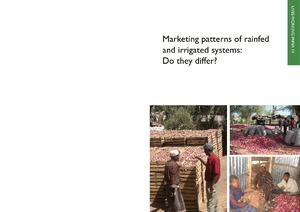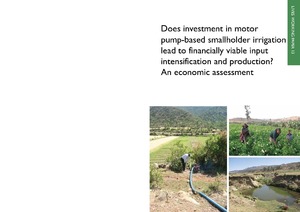Location
The International Water Management Institute (IWMI) is a non-profit, scientific research organization focusing on the sustainable use of water and land resources in developing countries. It is headquartered in Colombo, Sri Lanka, with regional offices across Asia and Africa. IWMI works in partnership with governments, civil society and the private sector to develop scalable agricultural water management solutions that have a real impact on poverty reduction, food security and ecosystem health. IWMI is a member of CGIAR, a global research partnership for a food-secure future.
IWMI’s Mission is to provide evidence-based solutions to sustainably manage water and land resources for food security, people’s livelihoods and the environment.
IWMI’s Vision, as reflected in the Strategy 2014-2018, is ‘a water-secure world’. IWMI targets water and land management challenges faced by poor communities in the developing countries, and through this contributes towards the achievement of the United Nations Millennium Development Goals (MDGs) of reducing poverty and hunger, and maintaining a sustainable environment. These are also the goals of CGIAR.
IWMI works through collaborative research with many partners in the North and South, and targets policymakers, development agencies, individual farmers and private sector organizations.
Resources
Displaying 106 - 110 of 959Marketing patterns of rainfed and irrigated systems: Do they differ?
Does investment in motor pump-based smallholder irrigation lead to financially viable input intensification and production? An economic assessment
Irrigation improvement projects in the Nile Delta: promises, challenges, surprises
Water and salt dynamics at the meso-level in IIIMP areas, Mares El Gamal canal
Water resources assessment of the Volta River Basin
The ‘WISE-UP to climate’ project aims to demonstrate the value of natural infrastructure as a ‘nature-based solution’ for climate change adaptation and sustainable development. Within the Volta River Basin, both natural and built infrastructure provide livelihood benefits for people. Understanding the interrelationships between the two types of infrastructure is a prerequisite for sustainable water resources development and management. This is particularly true as pressures on water resources intensify and the impacts of climate change increase.







